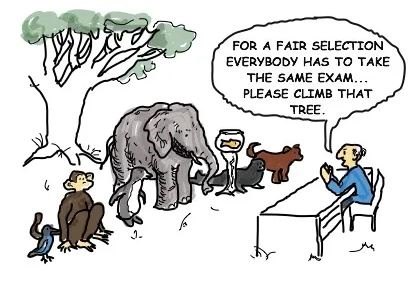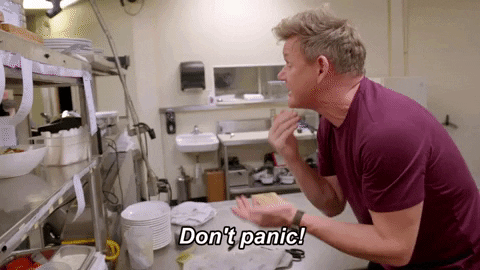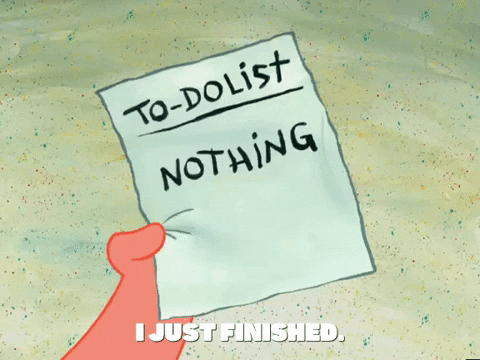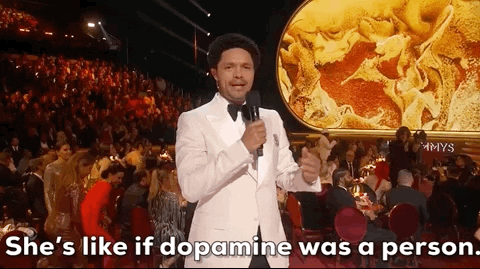More and more employers are starting to turn towards this topic as they realize they can benefit from the Neurodiverse workforce and utilize their skills. This article is dedicated to these forward thinking employers and managers.
Ha magyar vagy, így fordítsd le a cikket, tedd be a linket fordítóba:
When I started my self-discovery journey on the topic of ADHD and ADD (without H, the hyperactivity factor) it seemed like a disadvantage, more so like a disorder, because a lot of so called official sources referred to it as such. I should not forget that the naming of the condition happened in the 60’s first, and the researches were done on little boys. I familiarized myself with the downsides and challenges of this type of Neurodiversity in the day to day and work life. How can the traits we have make our lives harder. But than the “wait a minute” moment came to me and I had to ask myself: This can’t be it, if this is nothing more than a disorder, why am I functioning so well at work? Why am I managing my life well, why do I have success stories, and why can’t anyone tell from an outside source that my brain functions differently than the majority?
Am I misdiagnosing myself here? Do I have ADD at all? After all everyone has these traits every now and then, everyone has a few ADHD symptoms, right? Oh yes, but NOT ALL OF THEM! So it was suspicious to say the least.
So my research of the ADHD superpowers begun. Turned out I’m already handling it pretty well, no wonder I’m a good performer at work. Also in my private life I’ve been using many of the self-regulation tips and tricks already. And that’s why it can’t really be noticed on me unless I’m educating or raising awareness in my close circle, starting with my family and extended to my work environment.
But the purpose of this post is to highlight the traits employers can actually benefit from when is comes to and ADHD or ADD employee. As the researches on Neurodiversity are expanding, we now know that it’s in fact not a disorder, not attention deficit, but difficulty to regulate our attention, because we are paying attention to many things at the same time. Hence the difficulty to focus on just one thing at a time. Our brain is like a browser with lots of open tabs, one is frozen, and you don’t know where the music is coming from 🙂
Russell Barkley professor, who is one of the greatest minds on the topic says: Disorder begins when harm begins. – in other words it depends on how severe is it. If we learn how to regulate it and don’t let it influence our major life activities or self-esteem, no harm is done and it’s not considered a disorder. Approximately 5% of the population has or needs an official diagnosis. You have to have this since you were at least 12 to 18 years of age, the symptoms have to have endured for at least 6 months, they have to be causing harm, and they have to be developmentally inappropriate for your age.
The ADHD brain is in constant need of is dopamine. That’s why we have to find the task ahead of us interesting, creative, beneficial and challenging enough to execute, and actually follow through. But once that ADHD hyperfocus kicks in we can laser focus on one task and finish it sooner than everyone else. Do the research, finding out the possible obstacles, and finding the most optimal solution to any problem. Our excellent problem solving skills are working under pressure too, in a panic situation like a zombie apocalypse for example, you got to find a Neurodivergent person who thinks outside a box, not thinking in a linear way but looking at the big picture and see all the possible solutions at once. 🙂
The greatest self-discovery on the topic for me is what’s called Executive Function. The area responsible for that is located in the frontal lobe of the brain and is not exactly our friend 🙂 We do know what to do, how to do it, when to do it, but if the task don’t seem to be worth it (and sometimes even if it does) we just can’t get ourselves to actually do it. We want to do something, just not the thing that requires too much energy. These times we tend to clean up our inbox starting from 2015 just to avoid sending that one uncomfortable email.
I can trick my brain to do things with a greater success rate now, knowing this. I can break down tasks to smaller steps not to be overwhelmed. I can reward myself in a healthy way even if I didn’t finish the whole thing yet. I can look at the bigger picture and see what this sub-task will contribute to in the end. There is less so called ADHD paralysis when I can’t convince myself to do the thing because I don’t see the sense, the purpose of it. This is a tricky one because nobody knows it but you, and therefore no one else can work on it. But if you learn how to work around it it’s not going to be your enemy anymore.
Sometimes a little rest, me-time, not to beat yourself up, be more understanding and forgiving with yourself, a break can help clear your mind, Mel Robbin’s 5 second rule where you’re forcing yourself to do the things right away as they are popping up in your head, create list about absolutely everything and later have the dopamine from the pleasure of finishing a task and have it checked off the list can also help.
The next one can be good and bad at the same time. We tend to procrastinate due to the fact that our prioritization system differs from what most would call logical, and out of perfectionism. It’s not always the urgent task, not always the easy task, not even the hard one. But what seems to be interesting enough. And that can cause some problems. We appreciate deadlines to avoid the procrastination. But truth is, we perform the best under pressure, if the deadline is tight, we are digging in and execute the task in no time. We just need the dopamine kick first, the rush, the urgency, the sense. And we start working before you have a chance to speak because our brains have already started to gather the needful information without you noticing. 🙂 So if an employer or a manager is aware of this they can set deadlines more regularly. And if it’s not happening, we, the affected people can do it for ourselves.
We are learning in alternative ways, not necessarily the way the majority does. What’s logical to neurotypical people is not always the way for us. We may not read large texts for example, but learning by doing, like Simon Sinek the writer does, who has ADHD as well, and no one is questioning his abilities. So just because our brains are processing the information differently – because after all this is ADHD is all about – doesn’t mean that we are not paying attention or don’t care enough. The final result is what matters, if and ADHEer does it differently it’s just as good as the traditional methods. We are not questioning authority, we just know different – probably more effective – ways to do things.
Our short term working memory is next, we remember unnecessary information from a movie we saw 10 years ago, or remembering every lyrics ever, but we don’t know what did we eat yesterday, or why did we come to the kitchen at all. The protagonist of Slumdog millionaire and Dory from Finding Nemo/Dory had ADHD, if you ask me 😀 So it’s not forgetfulness or inattentiveness, we just have to make free space all the time for the new information, and old files are getting stored in a dusty drawer; but may emerge from time to time when needed. The challenging part is we can’t control which one gets stored long term 🙂
The next big one is creativity and thinking outside the box. Since we need to see the big picture, we are noticing things that no one else does. That includes problem solving in way shorter time, because we see every possible hurdle, solution and outcome at the same time.
How about short deadlines, panicky, last minute situations? We keep our calm because we’re used to procrastination. It happens because we tend to start working under the influence of dopamine when a deadline approaches, hence we do our best work under pressure. It can’t be constant of course, we need to recharge.
Or laser focus/hyper focus, when we find something challenging and interesting. We can be lost in it for a half day easily, doing every needful research and discovering new aspects even.
We are risk takers, brave, bold, if you will. When a situation requires volunteers you can count on us. BUT, and this is a big but.. we like to pick and choose our battles based on how rewarding would it be in the end. If a task doesn’t make sense, we can see it upfront, because our advanced pattern recognition. So it’s not negativity, but it’s the same method we can predict a movie’s ending, and being a good judge of character. Do you know the feeling, when you’re being introduced to a new person, everyone seem to like but you? You can’t explain it and you feel guilty for it, just to realize later that you were right. By the time everyone else knows, you said so.. Yes, that. It may be a new client, a new colleague, or anyone really.
We have the ‘hold my beer’ attitude, if something is called impossible we take it as a challenge, because you bet we’re discovering new ways to do it. Think outside the box yes, but paired with open mindedness. We can shift our opinions easier if we see that the original direction is not working.
A big one – multitasking. It may sound challenging, but for us it’s a must. We can do 2-3 tasks easily, just to not get bored with only one and keep the dopamine going. if a task seems to be boring, we may want to add and additional task just to keep it interesting. We may finish later but 3 tasks at a time.
What can you do as a manager?
- The first step is acknowledgement and acceptance. One of every 8 adults has some form of Neurodivergence whether they are aware of it or not. Or choose not to disclose due to the fear of being judged negatively or be seen as less than. Being different is not bad. Don’t think that your Neurodiverse employee is any less competent. Their abilities, skillset and strengths may just differ from the majority. What’s easy for you is not necessarily easy for them.
- If you got the first step, the next one is support. Chances are, there’s nothing you have to do other than not invalidating your employee’s experience or possible difficulties. Just bring the topic up, talk about it sometimes, so the affected team member can feel encouraged to talk about it too not feeling the need to hide.
- That leads me to clear and concise communication, different people may take different things away from a conversation. Make sure that what may be obvious to you is just as obvious to others and your Neurodiverse employees don’t have to spend extra energy to decode what is expected of them. It’s Project Management 101 to always double check, never assume. Employees will feel more secure in what they’re doing. Providing clear, written goals upfront increases the chance for success of any project.
- Always explain the task in details, what will it be good for, what will be the possible outcome, where are we in the chain that has to execute it etc. To show the full picture, start thinking about the process steps and the helpful sources, so we can break it down to smaller steps, take as much as we can do with responsibility and in a timely manner without feeling overwhelmed. This way we don’t feel like just a busy bee in the big machine, but it will actually make more sense if we foresee our position in the process. These can work on every single employee of course, but on Neurodivergent ones it can be more rewarding as you may think.
- Provide creative freedom. A Neurodivergent brain may process the information differently, and it may need more time, but that’s because we absorb it fully. We are not that interested in a partial task where we can’t see where it may lead. By allowing greater freedom with a particular task, you’re not only building employee trust, but giving us the chance to incorporate additional information and a new, fresh point of view.
- Allow or even encourage your employees who are known to be neurodiverse to use noise cancelling headphones in order to focus. It may seem antisocial but it’s really not. Look at it as a way of supporting them doing their job.
- With the home office opportunity, this one is not that relevant. Working from home is perfect for some of us because of the focusing aspect precisely, and for others it may be a struggle for the lack of the structure and difficulty of managing time. So I suggest, if you are in a decision making position, to ask your employees which environment they feel is supporting their work performance the best.
- When the lack of structured work environment can be a bit of a backlash, send them to time management trainings, or at least offer the option. Anything that helps regulate the nervous system and gives it a break from constant thinking is good. Mindfulness, meditation, anything that is available within the company. Think of our brains as engines that can overheat from continuous usage. It needs to cool down time to time – by the way this is the methodology of most ADHD medications in severe cases – they are eliminating the number of thoughts by suppressing them.
- Set clear expectations, deadlines, don’t be vague about the time we have for a certain task or it’s content. If it’s 2 months, so be it. Just let us know, so we can calculate our time ahead, and don’t feel overwhelmed because we think everything needs to be done simultaneously.
- Which leads me to the most important one. We are making lists about everything anyway to stay on track. But it may be difficult to prioritize the tasks. As it was mentioned above, what is logical to neurotypicals (urgency, time spent, difficulty) is not necessarily logical for us. We tend to put the interesting ones first that gives our brain the most dopamine. What you can do as a manager is to take this off of our shoulders and set a priority for the tasks that need to be done.
What can you do as an employee?
- Needless to say to create lists, this is something that is used in every area of our lives, all of us know that. But try to follow the linear logic here, and prioritize your tasks based on urgency, not to miss deadlines. Set an actual timer to measure how long does it take to complete a certain task. You may be surprised, how you’re underestimating or overestimating the time needed. And next time you can act accordingly. Planning and organizing belong here as well, spend more time on foreseeing your day, your week, your month etc. in every area of your life. Now that you know how long does it take, block timeslots in your calendar to focus on a specific task, not more, not less.
- Minimize distractions when performing a task. Your phone, music that contains lyrics, too many open tabs in your browser, noisy environment, the list goes on. If you let yourself be distracted, you likely forget the original task or tend to finish it much later as everything else comes up and you know, you’re not always starting with the most important/urgent one..
- Speaking of music, background music can make us very productive. Everyone has a different taste in music, but it has to be something soothing without lyrics starting from tibetian throat singing through meditation music or airplane cabins sounds, fireplace sounds (burning and cracking logs) to classical pieces; or to increase productivity it can be Super Mario theme music, anything that’s rhythmic and monotone enough to keep you going. Here’s a specific Spotify playlist for example: 154 BPM Songs for when your ADHD Brain needs a Factory Reset – (by Rach – Thneed girl)
- We know we’re doing our best work independently, however we’re working in teams, we must learn how to work together, ask for help and delegate when needed. I know, I know, we think we can do it best, but if we’re expecting some trust, we ought to give it first 🙂
- Do you know the feeling when you’re in a meeting and waiting for your turn to speak, but you know you’re going to forget your question/answer by the time you’re next to speak? The struggle is real! You don’t want to interrupt and come off as rude by talking over somebody but if you don’t, you may forget your contribution to the meeting. So it’s not that we think what we have to say it’s more important, but if we don’t say it right away, it will slip off our minds. The solution? NOTE IT DOWN during the meeting. It’s simple but not easy. Another thing is have you finished other people’s sentences for them as a kid? And as and adult are you finishing them in your head not to come off as rude? Yeah, me too 🙂 This is something I’m actively working on in my professional and private life as well.
- Ned Hallowell says that we have difficulty to hold a thought while another one comes in. The distraction by definition. What you can do is as soon as you’re sensing the incoming thought during work or study, the moment you feel the distraction coming up to do something immediately close your eyes and take a couple of deep breaths, breath in through your nose and out through your mouth, so the original thought sticks with you and you stay focused.
- This is specific, but one thing we’re not particularly good at is small talk. We don’t think it’s necessary. But we have to see that it’s important for a lot of people, it radiates openness and friendliness. So you could try chatting a bit more with your co-workers for them to feel that you’re approachable. Also in emails you can try using a few friendly sentences in the opening and closing, so people will feel welcomed to come to you, even if they are not relevant to the topic.
- Break down the tasks into smaller sub-tasks, have frequent breaks and move around. Take a short walk, exercise if you can. Breaking down a task consists of working ahead when possible, taking notes in advance and prepare. Take smaller steps ahead of time, so you don’t have to do it all at once and it’s not going to be overwhelming.
- Done is better, than perfect! Perfectionist procrastination is the worst. I know I know, we want everything that comes out of our hands to be flawless, but there’s no such thing! It’s better to just stop a task when it’s good enough, submit it and than continue to work on it if it’s possible and you have spare time. No, the best thing to avoid failure is NOT not to try! It’s much better than missing a deadline. And combined with imposter syndrome?? When you don’t think what you’re doing is good enough and others are better than you? That’s a delicious cocktail! 😀 What do you think how many hours did I spend on this article? I have to stop myself from perfecting it any further because I’ll sleep here, hyperfocus works like this. Once you’re on the carousel it’s hard to stop 🙂
- Bring in your fidget toy! It helps with concentration, it can be a simple pen, a stress ball, a fidget spinner etc.
- Talk with your manager if you feel the need, and if you feel like talking about the environment and conditions you perform best in.
Related articles and videos:
The Oscar winning Everything everywhere all at once movie, the writer has ADHD, and the movie is demonstrating greatly how our brains work by dealing with things simultaneously.
ADHD Everywhere All At Once: Daniel Kwan turned an ADHD self-diagnosis into a Best Picture Oscar
Harvard Business Review: Neurodiversity as a Competitive Advantage
Scientific American: Clearing Up Some Misconceptions about Neurodiversity
Great Place To Work: How to Build and Support Neurodiversity in the Workplace
Forbes: 3 Ways To Embrace Neurodiversity In The Workplace
Forbes: The World Needs Neurodiversity: Unusual Times Call For Unusual Thinking
Fast Company: Neurodivergent people make great leaders, not just employees
Very Well Mind: What Is Neurodivergence and What Does It Mean to Be Neurodivergent?
Campaign Life: Great minds don’t think alike: How to tap the neurodivergent talent pool
YouTube: Neurodiversity – the key that unlocked my world | Elisabeth Wiklander | TEDxGöteborg
YouTube: Neurodiversity is a super power not a problem | Elaine Halligan | TEDxBonnSquare
Sources:
Thomas E. Brown PhD – Yale clinic for attention and related disorders
Ned Hallowell MD (ADHD mental health expert, Columbia University department of psychiatry)
Jeffrey Rice – ADHD coach, author, speaker
Russell Alan Barkley – clinical psychologist professor of psychiatry at the VCU Medical Center
Jessica Michaels – Neurodiversity Work Coach – http://ndworkcoach.com
 EniWays Pólonyomtatás, Egyedi póló/ajándék, Tarot kártya kirakás, blog, önfejlesztés, neurodiverzitás, ADHD, életmódváltás, stroke
EniWays Pólonyomtatás, Egyedi póló/ajándék, Tarot kártya kirakás, blog, önfejlesztés, neurodiverzitás, ADHD, életmódváltás, stroke
















Facebook Comments